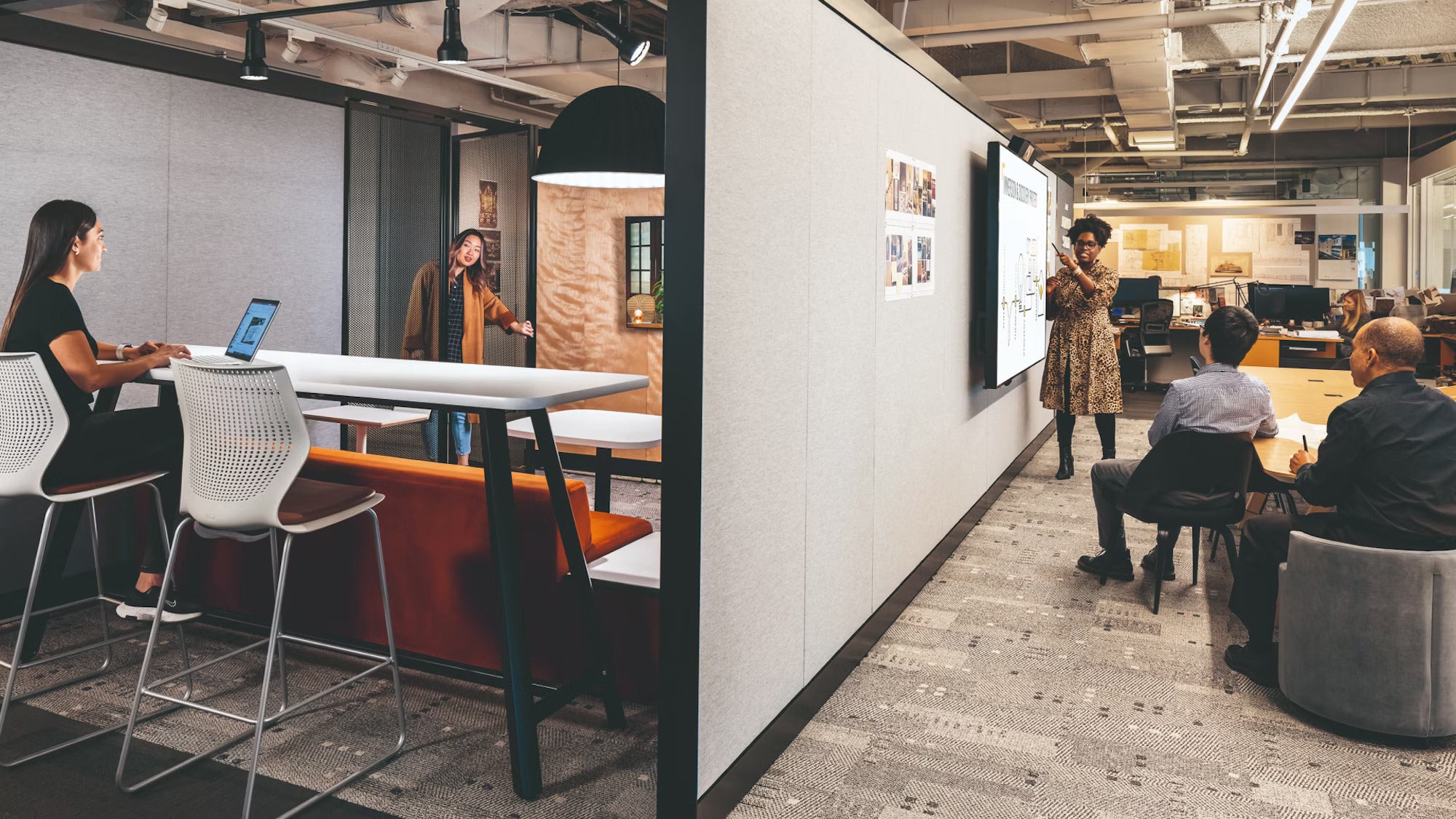Reimagining the modern workplace: three keys to supporting employee wellbeing, connection and change
THE ARTICLES ON THESE PAGES ARE PRODUCED BY BUSINESS REPORTER, WHICH TAKES SOLE RESPONSIBILITY FOR THE CONTENTS

MillerKnoll is a Business Reporter client.
The past few years have completely upended traditional notions of the workplace. With remote and hybrid work becoming the norm, employees now expect flexibility in when and where they do their jobs. However, extended remote work has also revealed the irreplaceable value of in-person collaboration and connection.
In fact, when asked why they would come into the office, a significant 74 per cent of employees surveyed cited camaraderie, community or connection as the number one reason.
As a result, organisations face a dilemma – how to meet employee demands for location flexibility while also nurturing the interpersonal ties that are essential for innovation, culture and business success? The answer lies in reimagining what the workplace can offer employees by focusing on three key areas:
Supporting holistic wellbeing
The events of the past few years have cast a spotlight on declining employee mental health, prompting employers to acknowledge their role in supporting wellbeing. However, truly effective strategies demand tangible action beyond recognition alone, addressing the physical, mental and emotional facets of wellbeing. This includes providing such things as ergonomic furnishings, a variety of work settings and dedicated spaces for relaxation and rejuvenation. When employees are cared for, they are more engaged, productive and loyal.
Enabling meaningful connections
While remote work enables productivity, nothing can replace the “coffee machine catchups” that spark creativity, strengthen relationships and build culture. Forward-thinking organisations now recognise that facilitating in-person and virtual connections is a primary purpose of the workplace. Thoughtful design provides spaces conducive to strong ties within teams, as well as “weak ties” across the organisation – the unexpected encounters and conversations that often generate fresh ideas.
Empowering adaptability
Change is constant, and organisations that embrace agility have a competitive advantage. Workplaces can empower employees to navigate change by giving them control over their environments. Easy reconfiguration of furnishings and spaces allows teams to modify their work points quickly as needs shift minute-to-minute or hour-to-hour. Larger-scale redesign can occur seamlessly overnight or over weekends to optimise spaces.
The disruptions of the past few years have made employee flexibility a key consideration. But truly effective workplaces move beyond basic accommodations to actively support wellbeing, connections and change. When organisations invest in these areas, they demonstrate their commitment to helping employees thrive in the new world of work.
To find out more about our Design with Impact approach, please visit www.millerknoll.com/design-with-impact.
*Source: February 2023 Future Forum Pulse
Subscribe to Independent Premium to bookmark this article
Want to bookmark your favourite articles and stories to read or reference later? Start your Independent Premium subscription today.